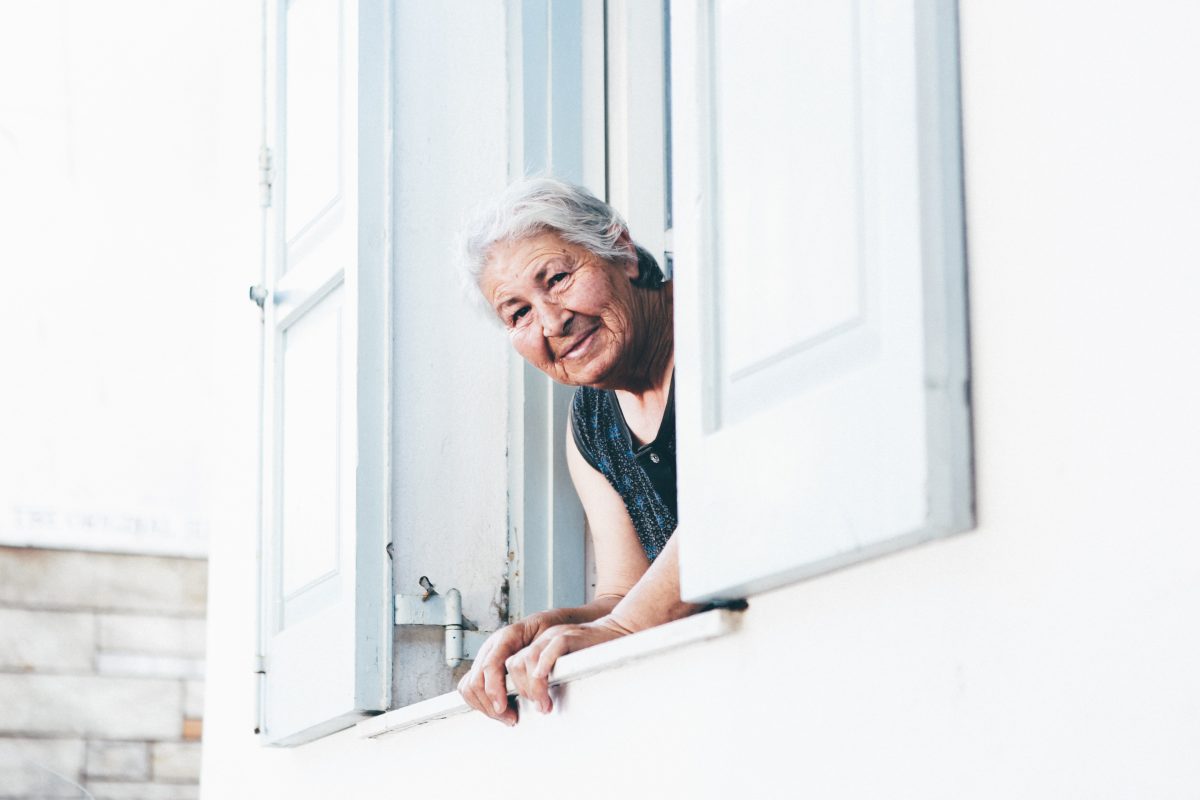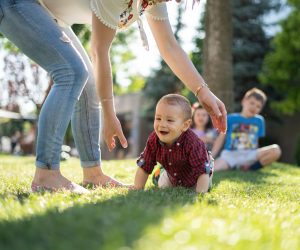
How to Keep the Elderly Safe and Happy in a Pandemic
Nicky Blackburn via Israel21c – Should the elderly stay home during the Covid crisis, how do we know if they are depressed, what can we do to raise their spirits? We asked four experts for their advice.
It’s a tough time everywhere in the world right now, as the numbers suffering from Covid-19 continue to rise. And hardest hit of all are the elderly.
Asked to shelter in place for months already, some are now being told they must continue to stay put indefinitely, while others are being told it’s fine to go out, even while pandemic numbers rise.
As part of a new series, Ask the Experts, we invited readers to send in questions they might have about how to keep elderly friends and relatives healthy and safe during corona, and asked four professionals in the gerontology field to answer them.
The experts are Prof. Efraim Jaul, the Director of Geriatrics at Herzog Medical Center; Yonit Zabari, Director of the Department of Social Work at Herzog Medical Center; Dr. Amnon Raviv, a professional medical clown and college instructor; and Dvora Corn, a Jerusalem-based family and marital therapist specializing in aging, illness and end-of-life issues. She is cofounder of Gisha L’chaim – Life’s Door, helping people cope with death and loss.
Find out what they said below.
Question: In many places around the world we seem to be going into a second wave of corona, but some governments are keeping everything open. What should elderly people do in this case? Is it better for old people to just stay at home until this crisis is finally over?
Prof. Efraim Jaul and Yonit Zabari
“It is important for older people to go out. Loneliness and staying indoors can be more problematic than corona, causing depression and other issues. One should be careful when outdoors — wear a mask, do not stay in closed areas, keep two meters (6 feet) apart, and meet with friends in open areas.”
Dr. Amnon Raviv
“This is an open question. It is clear now that old people are at risk. Staying at home for long periods of time can be depressing, so if you decide to do this, I recommend you meet your loved ones not only through virtual platforms but also for real. Keep 10 meters’ (approx. 30 feet) distance (from your balcony, for example) and you can meet safely and share your feelings with the family. This is extremely important for your mental wellbeing.”
Dvora Corn
“The question of how elderly people, or any individual in what has been identified as high risk groups, ought to behave during this health pandemic is complex and highly personal. As with many choices, decision making may be based on a risk-benefit equation which takes into consideration not only physical health but other factors which influence quality of life.
“In this corona time, which is fraught with so many unknowns, the capacity to plan is further challenged by the reality that we have no clear end-point and as such one may be challenged to sustain plans or may want to reconsider choices as time progresses.
“As a guideline to assist in these challenging times, it is often helpful to begin with an examination of values that one senses are core elements of that person’s meaningful existence. For instance, in asking oneself the question ‘What makes my life worthwhile?’ or even ‘What makes a day a good one for me?’ we begin to understand those unique activities without which one’s life becomes less satisfying or even, tragically, unbearable.
“As such, one may opt to run the risk of serious illness and even death, if they deem that a life without these elements (e.g. family connection, or other social interactions, time in nature) is not a ‘life worth living.’ While this may seem harsh or even irresponsible behavior, as a society we owe this right to every human being– to choose how he or she wants to live.
“The question, if at all possible, should be posed to the individual elderly person to engage in an honest reflection. It is never too early to engage in ‘The Conversation,’ examining core values and sharing choices on how to live, especially in the face of potential illness. Many tools to assist in this process exist and some can be found on www.lifesdoor.org.”
Question: Is there anything old people can do to improve their chances of survival if they do catch corona?
Prof. Efraim Jaul and Yonit Zabari
“Eating properly is very important. Drink a lot of liquids; eat fresh fruit and vegetables; meals should be light but ensure to include protein, for example eggs.”
Dr. Amnon Raviv
“Like any other life-threatening disease you would be able to fight the disease better if your spirit is high. Using lots of humor, lifting the spirit with playing and singing good music, dancing (even in your bed if you don’t have much energy), meeting with your beloved ones to share good memories or singing together.”
Question: I’ve heard that vitamin D helps you fight corona. What level of vitamin D should we be taking every day? Are there other vitamins or food supplements that might help?
Prof. Efraim Jaul and Yonit Zabari
“Assuming one is eating healthy as outlined above, Vitamin D 4000 units is recommended on a daily basis. Vitamin D is known to keep bones healthy and reduces depression. If one is not eating a healthy and balanced diet, Vitamin B and B complex vitamin are recommended as well.”
Dr. Amnon Raviv
“Your physician probably would be able to answer this question, but I can add to the list other very important vitamins you should have: vitamins L, E & H (love, empathy & humor). It would be great if you could have a big quantity of those, as they would strengthen your immune system as well.”
Question: How can my family and I lift the spirits of an elderly family member, who is isolated in a nursing home? He can only see his family through a window, which makes him happy, but at the same time frustrated and sad that he cannot physically be in the same room as us. With the lockdown continuing on in California, it is very challenging for him (and us too).
Prof. Efraim Jaul and Yonit Zabari
“Meeting with the elderly in an outdoor area (e.g. garden) is very important and should be implemented where possible and as much as possible. Communication must be more than just through a window. We encourage use of tablets, as well as frequent phone calls during the day.”
Dr. Amnon Raviv
“It is very important to do something together. After sharing how you feel and finding out how everyone is, it is highly recommended to do something enjoyable together. For example, if you have good memories from a vacation that you had in the past, try together to remember every funny detail. You can sing songs that you like together or you can tell jokes to each other. The emphasis is on doing enjoyable things and less on discussing negative feelings.”
Dvora Corn
“We know that the frustration of social distancing may be hard on both the elderly as well as their family members. Further, many older people with cognitive impairment find the technological alternatives such as Zoom to be anxiety producing and overstimulating. Living with these restrictions challenges us to find new and creative solutions.
“We have found that setting goals and engaging in activities that are meaningful to both parties– even if they are not done in the same space — provides a sense of connection. This may include doing a ‘book club’ and setting times to share thoughts about the books, or doing creative arts and showing one another how each is progressing in such projects.
“The benefit of these sorts of activities, beyond being engaged in a pleasurable task, is that they carry us forward and allow us to plan for interactions with family members which are content based (‘Show me the scarf you are knitting’ or ‘How is your orchid plant doing?’).
“These corona times have actually opened up new or dormant vistas for engagement and sharing. While none of us chose to live through a pandemic, we can find deeper meaning and connection, despite the physical space between us.”
Question: I’m worried that my parent/grandparent is suffering from loneliness, but they put on a brave face when I ask them about it. How can we tell if an elder may need professional counseling or other forms of help, and what can I say to help?
Prof. Efraim Jaul and Yonit Zabari
“Try to determine if they are following a daily routine, i.e. sleeping well, eating healthy and balanced meals, and if they have an appetite. These are all indicators for depression.
Frequent phone calls and use of video calls are important. Encourage them to go out for a short walk outdoors.”
Dr. Amnon Raviv
“You can say how much you love them and show them how much you care for them. Everybody will feel less lonely if they feel loved. The virus makes everybody feel lonely, especially elderly people, and it is our privilege, but also obligation, to take care of them. If you feel that they need professional counseling ask them first what would help them, and then see how, and in what way, you can assist with professional counseling.”
Dvora Corn
“Loneliness has been a growing problem in the Western world over the past decade. The challenges of corona have exacerbated the demographic trends in the increased number of elderly (what has been termed the ‘Gray Tsunami’), with social isolation being the cause of many serious health problems ranging from depression to malnutrition and cognitive decline.
“While we want to support an older person’s need to feel a sense of dignity and autonomy, as concerned family members we want to monitor and take action if we see early signs of these sequelae. In such situations, an assessment by a professional who understands the needs of the elderly would be advised.”
Question: My family of three in NY has been home since March 2 and is scrupulous about social distancing. My husband and I work from home, my son attended school on Zoom, and we only have grocery deliveries. We have mostly avoided being in public, except for occasional walks. My father is age 86 and lives an hour from my house. Come the fall, when my son restarts high school in person, I am afraid for our family to be around his grandfather. Is there any safe way to see him?
Prof. Efraim Jaul and Yonit Zabari
“We are always faced with risks and have to make decisions. Your father should not be alone. We would encourage you to visit but keep in mind the following: Do not stay in a closed area, the visit must be outdoors, everyone should wear a mask. Everyone should maintain social distancing, especially your teenaged son. If outdoors is not available, ensure that the indoor area is well ventilated and windows are kept open.”
Dr. Amnon Raviv
“It is hard not to celebrate the Jewish [holidays] together. What we should keep in mind is that hundreds of laboratories around the world are working to produce a vaccine to the pandemic. The estimated time for having the vaccine is around a year from now, so we should encourage ourselves and our family to be patient. Soon enough we would be able to celebrate the Jewish chagim together again. In the meantime, try to stay safe and celebrate together on Zoom.”
Question: I live in a different country from my parents, who are in their 80s. Flights now seem to be resuming, even though corona isn’t over. Is it safe for me to fly there and stay with them in their home or should I stay in a hotel?
Prof. Efraim Jaul and Yonit Zabari
“Currently it would be preferable to travel by car only. We are concerned about traveling by plane and being in the airport vis-à-vis picking up the contagion. Staying at a hotel is preferable.
“If you have no choice and must travel by plane, you can as long as you are healthy and do not have any of the underlying conditions. Once again it would be preferable to stay at a hotel.”
Dr. Amnon Raviv
“I think that the safest thing to do is to avoid physical contact with them, but that can cause depression and stress, which is really bad. If there is a possibility to keep physical distance of some meters (see my answer to the first question) that would help you all to lessen the stress and feel the love you share. “
Question: I’m 65. I’m not THAT old but I am terrified to go out in public. The best I can do is push (force) myself to go outside to walk at 5 am a couple of times a week. And even then there are people around and they don’t behave any better regarding social distancing at that hour than they do during other hours. They don’t seem to even comprehend that this pandemic is terrifying to us older folks.
My biggest challenge has been finding mental health support to deal with my fear and isolation. My family doctor is a lovely man but he doesn’t understand my fear. And unless one is able and willing to pay for private therapy there doesn’t seem to be ANY free mental health service in Israel. I try to find help but there is no-one there to even tell how much pain we feel, or how much we are suffering.
Yonit Zabari
“The prolonged period of the corona crisis makes us feel insecure, helpless and anxious. In order to cope with the current situation we need to find a purpose that will help give our lives meaning and can help us pass the time and help us reduce our fears and anxieties.
“I’m hearing from your question that you are experiencing great distress accompanied by fear anxiety. You are doing something so important by making the effort to deal with your fear and go out early in the morning several times a week.
“However, you present in distress and in my opinion would benefit from some professional help. I checked with your health insurance company, Maccabi, and found out you can reach out to the local Maccabi branch in your neighborhood and request to speak with a social worker. Being connected with a social worker will assist you in connecting with support services in your community. In addition, it is very important for you to go back to your family doctor and discuss the possibility of trying some medications to help with what you’re feeling.
“You could also consider calling Metiv, the Israel Psychotrauma Center. Their telephone number is: +972-2-6449666, or you can email them at info@metiv.org.”
Dr. Amnon Raviv
I suggest you call Eran- Emotional First Aid’ by phone(*1201) or connect to them through the Internet. If you feel terrified by the pandemic and you need mental first aid, please call them.
Question: My parent/grandparent is hard of hearing and finds it difficult to follow the conversation when I wear a facemask. What would you suggest doing?
Prof. Efraim Jaul and Yonit Zabari
“Remove the mask and keep your distance, more than 2 meters (6 feet). Speak loudly and directly but be careful not to spit while doing so. Avoid shouting.”
Dr. Amnon Raviv
“There is a technical solution for that — there are really small pocket amplifiers and microphones that can produce good volume that you can use. This is a perfect solution; they will hear you loud and clear.”
Question: How can we help the elderly feel connected if they don’t own a smartphone or computer?
Prof. Efraim Jaul and Yonit Zabari
“Call and talk on the landline as frequently as possible. It may be an opportune time to purchase a tablet and introduce the elderly person to technology. At Herzog, when we went into lockdown and did not allow visitors, we purchased tablets to ensure that patients would continue to be connected with their loved ones and outside world. Many were not technologically savvy but learned quickly.”
Dr. Amnon Raviv
“I would suggest buying them a smartphone (unless they have Alzheimer disease or any other disease that harms one’s cognition) and give them technical support through the regular phone on how to operate it, so that they can see you while talking.”
This article has been modified. To read the original article click here.
For more articles from Israel21c click here.






